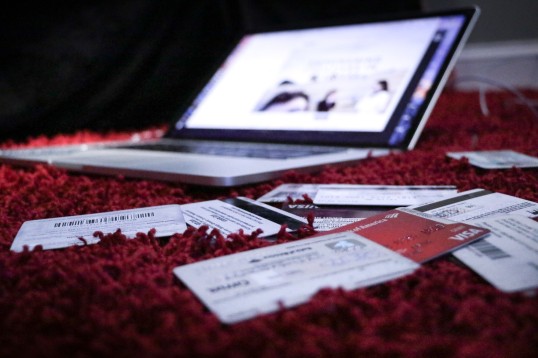Have you ever been declined a loan or credit card or felt like your credit wasn't good enough to qualify for a large purchase like a car or home
You're not alone. Many people have bad credit and need help understanding how it happened or what to do to fix it.
How Is My Credit Score Determined?
Your past credit history determines your credit score. Not having a history of credit, missing payments, or keeping high balances can negatively impact your score. Meanwhile, you build a good credit history by:
- Paying your bills on time.
- Taking out a variety of credit and making on-time payments above the minimum.
- Keeping your utilization ratio to 30% or below, meaning you only use 30% or less of the credit available to you.
Why Pursue Credit Repair?
A good credit score opens up more opportunities for employment, housing, and various loans. In contrast, bad credit can limit your options. Some of the benefits of good credit include:
- Higher chance of receiving credit approval.
- Lower interest rates on credit cards and loans.
- Increased borrowing limits.
- Greater chance of rental application acceptance.
- Opportunities to receive larger amounts of credit, such as a mortgage loan.
You can improve your credit score and financial situation by pursuing credit repair. Repairing credit can also help save money in the long run by lowering interest rates and monthly payments on existing debts.
What Are the Steps to Credit Repair?
1. Check Your Credit Score & Report
To repair bad credit, you must first check your credit report to gain a comprehensive view of your credit situation. It is recommended to order all three credit reports as each may contain different information.
Reviewing the credit reports will provide a better understanding of the factors contributing to your credit score and determine the steps you need to take to improve it. It can also identify any errors or fraudulent activity that may be affecting your score.
2. Pay All Your Bills On Time
One of the best ways to rebuild your credit is to pay all your bills on time. Set up payment reminders or automatic payments to help you stay on top of bills. This can help you manage your finances and avoid financial stress. It also shows lenders you have the financial means and responsibility needed to take on additional credit.
3. Start Establishing Good Credit History
If your credit score is low due to a lack of history, consider secured credit cards to begin building credit. An initial cash deposit backs secured credit cards, making approval easier to obtain. After demonstrating a good payment history, you can upgrade some secured cards to unsecured.
Similarly, consider getting a loan co-signer or applying for new card accounts with someone with good credit history. Once you have consistently paid your debts for a while, your credit history will reflect improved creditworthiness.
4. Review Boost Programs
Boost programs use factors not usually included in your credit report to boost scores. Experian Boost is a free program that provides bank information on payments for bills you already pay, such as utilities, streaming services, and rent. At the same time, UltraFICO reviews factors not typically included in your credit score, including longevity of bank accounts, money in savings, and a history of positive balances. These programs can sometimes open up opportunities for accessing credit. However, consumers should be careful only to take on debt they can pay back promptly.
5. Reduce Credit Card and Other Debt
Reduce credit card debt by paying off the balance monthly or consolidating debt into one lower-interest loan. As you work to pay off your cards, starting with the cards with the highest interest rates will save you the most money. Some borrowers succeed in paying off low balances first to gain a sense of success as they tackle their debt.
6. Work on Your Credit Utilization Ratio
Consistently monitor and track your credit utilization ratio, the ratio of how much you owe on credit versus how much credit you have available to use. Keep your credit utilization ratio below 30%. This means making sure you're using only 30% of your available credit every month.
7. Avoid Opening or Closing Too Many Accounts
Abstain from taking out new loans or opening new lines of credit while trying to repair bad credit. This will help decrease your debt burden and improve your credit score. Also, only close old accounts if necessary, as this can negatively impact your credit score. In addition, keeping old credit cards open can also help build good credit history since it shows that you're willing to take responsibility for your financial decisions, track finances better, and keep your credit utilization ratio low.
8. Fix or Dispute Any Errors
It's essential to regularly check your credit report so that you can identify and address any errors or inaccuracies. This could include incorrect personal identification information, such as addresses, your social security number, fraudulent accounts opened under your name, or inaccurate payment information.
9. Consider Debt Consolidation or Payment Plans
Debt consolidation loans offer a way to simplify payments and reduce interest rates. You can also contact creditors directly to negotiate repayment plans or settle debts for less than what you owe. Communicating with creditors directly can help you reach an agreement that satisfies both parties and avoid late payment fees or other penalties.
10. Monitor Your Score
Monitor your progress regularly through updated credit reports and scores. This will help ensure that your efforts are bearing positive results and helping you improve your financial health overall. Credit monitoring services may help keep track of progress, ensure the accuracy of reports, and identify areas for improvement. This can help you better manage your finances, plan for future goals, and identify ways to improve overall credit health.


